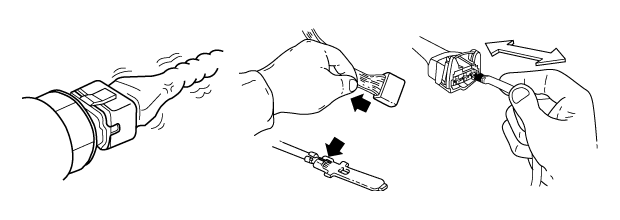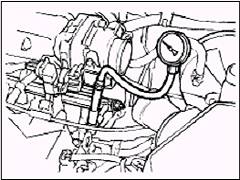Check the following conditions:
Check for damaged harness and terminals: contact resistance, oxidation, bent or broken terminals.
Check for poor connection between ECM and component: backed out terminal, improper mating, broken locks or poor terminal to wire connection
Use a suitable male pin to ensure that contact in sockets is good. The pin should remain in position when pulled gently.


